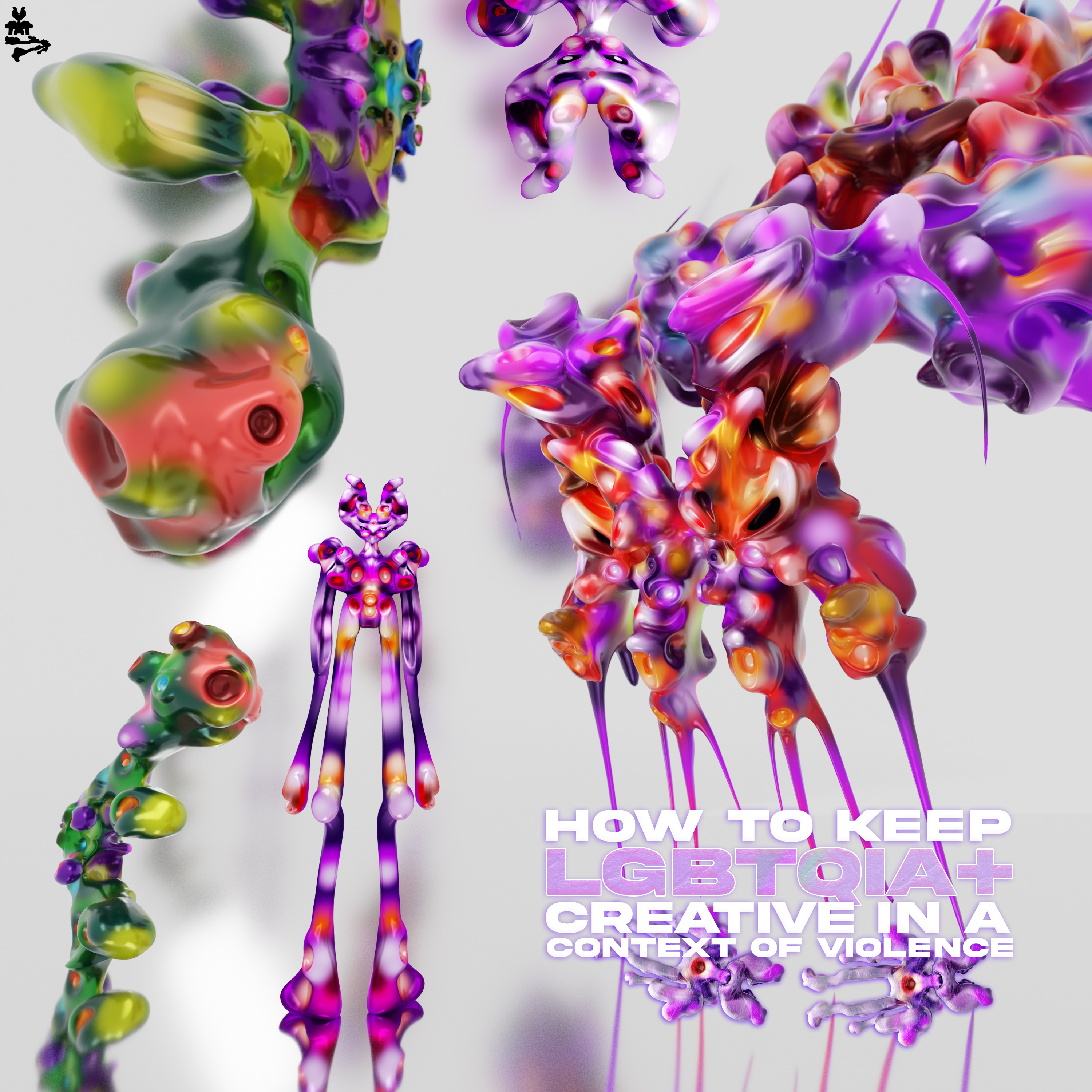
Queer Survival Strategies in Digital Worlds
In Brazil, LGBTQIA+ people have always been living under conditions of emergency. The current pandemic has only intensified this. However, the web has become an even more important safe space to imagine non-hegemonic futures. Read a statement by the Brazilian curator and DJ Paulete LindaCelva who took part in the performance «Tormenta in Marsha» at In/Out Festival.
Making art in a country like Brazil is something that implies softness, sophistication, and radicality. Affection and touch are part of the artistic construction à brasileira, yet simultaneously we as a nation are experiencing a dramatic conservative shift. There is a connection between the government’s negation of the health issues that encompass the COVID-19 pandemic and its almost morbid attempt to withhold the rights of the LGBTQIA+ population and erase its culture.
With regard to the experiences of the LGBTQIA+ people and sex-dissident bodies, it is undeniable that social distancing has caused disproportionate harm in comparison to the rest of the population and exacerbated existing problems such as mistreatment and physical and psychological violence.
Aggravating Pre-existing Issues
Many of these issues are byproducts of the lack of public policies, the denial of LGBTQIA+ rights, and the forced coexistence with (and even the expulsion by) unaccepting relatives amid the pandemic. These limitations and uncertainties aggravate pre-existing mental health issues such as loneliness, depression, anxiety, and suicidal ideation, which are common issues among LGBTQIA+ people.
I point out these issues to underscore that for sex-dissident artists in Brazil implies there is a huge disparity in access to different ressources and in the ways of experiencing the pandemic. In this scenario, we witness a great rise in online solidarity in Brazil and all over the world, addressing both information about the virus and entertainment. The second one has been the most practical way of keeping alive the production of LGBTQIA+ artists. Festivals such as In/Out and Marsha Trans Festival reunited and focused on trans and LGBTQIA+ artists, which helped to support the production of the community and to create much-needed spaces of shared experience and critical reflection.

How to Keep Vulnerable Bodies Creative?
The internet’s role at this moment is indisputably very important. It is a space that proposes democratization of access to and exhibition of artistic work. But how do we keep such vulnerable bodies creative in a context of domestic and state violence? I believe that creativity is this: Senders and receivers of a message, actions and reactions. We need to be more attentive to the surprises, to subjects such as violence, productivity, access, means of sustaining ourselves, and having an active artistic output in the middle of so much violence.
The Norient Special «Promise of Catharsis» is based on performances at the South American «In/Out Festival» that took place online between September 2 and 6 in 2020. It is funded by Pro Helvetia South America.
Biography
Published on March 11, 2021
Last updated on April 09, 2024
Topics
Special
Snap

![Ensamble Maleza (photo: [e.]).](/sites/norient.com/files/styles/norient_free_landscape_1_200_/public/maleza-para-la-web-scaled.jpg?itok=hpYcvJ3Y)